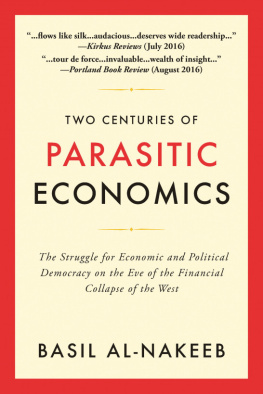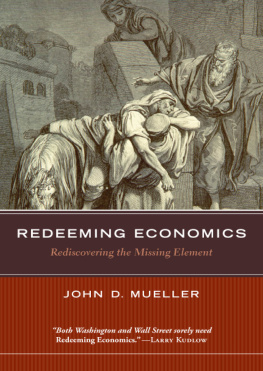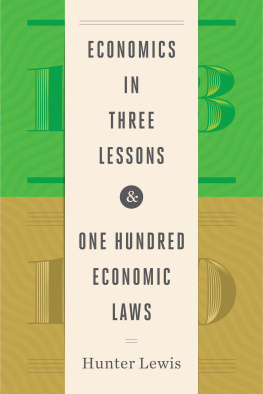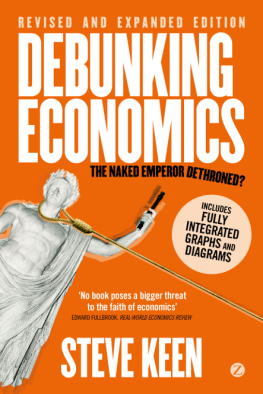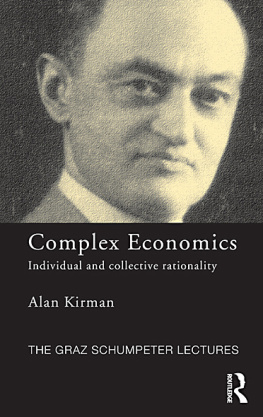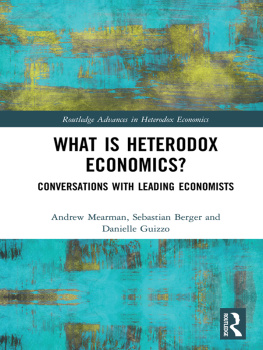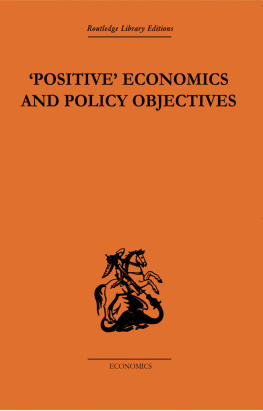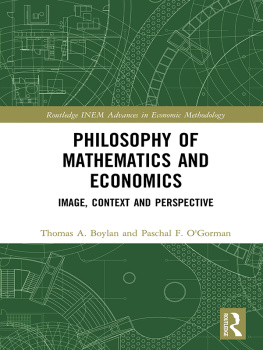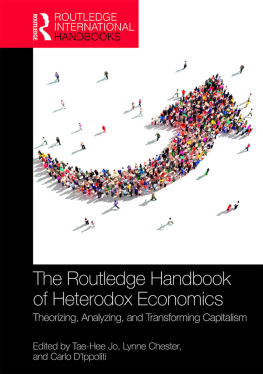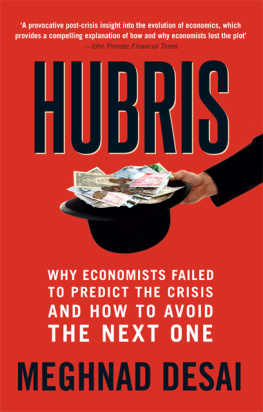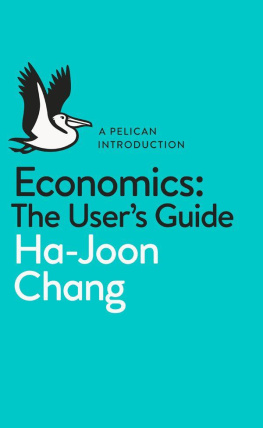Book Reviewers
A debut book delivers an appraisal of whatails Western economiesAl-Nakeeb, an independent scholarwith graduate economics training and a four-decade career infinancial markets, surveys classical, Marxist, Keynesian, andneoclassical economics. He concludes that only genuinedemocraciesas after World War II, have shown any effectiveness inquelling cyclical financial crises wrought by extremes oflaissez-faire self-interest or authoritarian societal-interest. Heproffers a unified theory of macroeconomic failure. Its prcis:A moral deficit, typically driven by plutocratic greed for wealthgathering, causes a democratic deficit, inferior public choice,immoral policies, economic inefficiency, and negativeexternalities, culminating in macroeconomic failure. In otherwords, a greedy few use wealth to grab political power, rig thesystem, and enslave the debt-ridden many, la the 2008 subprimemeltdownThe author dismembers with a deceptively light touch Hisprose is crystal clear and flows like silk. He displays command ofthe subject and provides rational evidence for his sweepingconclusionshe accomplishes his goal to give economics a goodstir, and presents his case in language accessible to all. Hisconfident predictions that the Eurozone will unravel and Westernbanks will fail to avoid another crisis look prescient followingthe Brexit vote.
An audacious and caustic financial work thatdeserves wide readership and close academic scrutiny.Kirkus Reviews
At the heart of Al-Nakeebs tour deforce is the irreconcilable democracy andparasiticcapitalism.the inherently flawed classical economic modelsstillexhorted by notable economists as if gospelhis Unified Theoryof Macroeconomic Failure, consists of identifying those negativeexternalities where the social costs far exceed the private cost,as causing economic failureinclude irrational taxes, amplifiedeconomic cyclicality, the re-emergence of monopolies andmonopsonies, along with the subversion of democracy by plutocracyand what he characterizes as immorality in public policy.
Al-Nakeebs own scholarly andprofessional background clearly inform the detailed treatment hegives to the discussion of the negative externalitiesproviding avariety of economic solutions, including equity financing models toreplace debt, excise taxes on interest and splitting personaltaxation (one on earned income and one on personal capital). Healso advocates a redistributive tax on extreme wealth.
He acknowledges the need for students ofpolitical science to shed more light on the role of plutocraticmotives in historical political developments. Al-Nakeebcorrectly observes that macroeconomics is very political. Theprivileged few seek to protect its power and wealth, making avariceand political motivation two sides of the same cointheconcentration of media into a few large corporations keeps thecitizenry properly un(miss-)informedConcentrations of wealth allowthe powerful interests to engineer electionsthe1980scounter-revolution.Al-Nakeeb notes that Westerngovernments find themselves today waiting passively for the nexteconomic crisis to hit, calling the Great Recession of 2008 analarm bell. He believes that while the next crisis carries thepotential for greater hardship should the plutocracy persist intheir present policies, there is promise of the next crisisbecoming the great cleanser
Al-Nakeebs contribution with thisbook is invaluable - not only in the wealth of insight it provides,but in the ease with which it is provided - easily consumable bythose not versed in economics, finance or politicaltheory.Portland Book Review
Two Centuries of Parasitic Economics
Basil Al-Nakeeb
Copyright 2016 Basil Al-Nakeeb
All rights reserved.
First published in the United States
Distributed by Smashwords
This ebook is licensed for your personal enjoymentonly. This ebook may not be re-sold or given away to other people.If you would like to share this ebook with another person, pleasepurchase an additional copy for each person you share it with. Ifyoure reading this book and did not purchase it, or it was notpurchased for your use only, then you should return toSmashwords.com and purchase your own copy. Thank you for respectingthe hard work of this author.
Library of Congress Control Number: 2016901840
Cover Design Acknowledgement: Kristin T.
Ebook formatting by www.ebooklaunch.com
Acknowledgments
I am grateful to Roderick Grosvenor, myschool principal, for letting me attend economics classes as alistener at an early age.
I am also indebted to the late Nobel Laureateand father of econometrics, Professor Laurence Kline, for invitingme to attend the University of Pennsylvanias Wharton School as avisiting scholar, and to Vahan Zanoyan, then managing director ofWharton Econometric Forecasting Associates. Furthermore, I amobliged to Professor Fakhri Shehab, the former chief economicadviser to the Emir of Kuwait and senior research fellow at StAnthonys College, Oxford, for his incisive economic views andinvaluable discussions over the years.
To Dr. Abid Al-Aziz Al-Wettary, former deputydirector of the Organization of Arab Petroleum Exporting Countries(OAPEC), I would like to extend my gratitude for inviting me topublish my first article in the OAPEC Journal.
Im thankful to Professor Imad Moosa,professor of finance, RMIT, Melbourne, Australia, for his excellenttechnical contributions and opinions when we worked together andsubsequently. I appreciate Dr. Usama AlJamalis penetratingeconomic interpretations, Dr. Hamid Majids priceless comments, andHamad Al Benalis excellent input.
My thanks to Dr. Pam for her extensivecomments on the manuscript and general encouragement, to AydenMajid for her comments and encouragement, and to Jacqueline Ramey,Aileen Cho, Nanette Day, and Linda Kleinschmidt for their tirelessediting. I am delighted by and appreciative of Williams lineediting and most valuable comments.
Im indebted to my wife, Iman, for herencouragement, to my daughter, Sema, for her invaluablecorrections, and to my son, Talib, for his understanding andpatience.
And most of all, Im indebted to my parents,who made sacrifices for my education and helped me in innumerableother ways. To all of you, I offer my enduring gratitude.
B. S. T. Al-Nakeeb
Authors Note: Readers can contact the authorwith their comments, requests for elaborations, and questions byemail via: .
About the Author
Basil Al-Nakeeb (b. 1949) is an independentscholar. He has helped establish four investment banks and aconsumer credit company. His professional career, spanning fourdecades and three continents, has mostly focused on stocks. Hislast stock recommendation sent the stock limit up four days in arow. He extended Leontiefs input-output matrix (for whichProfessor W. Leontief received the Nobel Prize a year earlier) tooptimize national investment plans. He guided his research team todecompose the secret currency basket of the Kuwaiti Dinar, earninghuge interest spreads. He has written articles and given talks oneconomics and finance. He holds an MSc. in Financial Economics(from the University College of North Wales) and is a CharteredFinancial Analyst (CFA). Al-Nakeeb lives in Dubai with his wife andson.
Contents
Economics is a very dangerous science.
John Maynard Keynes
The ongoing debate about a crisis ofcapitalism in Europe and America is misplaced because the failureis rooted in the degenerative democratic processes and noteconomics per se. Doubtless, much of the wrong economic policiesproposed by distinguished mainstream economists are not driven byignorance, although some are, but in support of political agendasthat drive parasitic economic policies, resulting in economicfailure. The corollary to this is that, contrary to acceptednotions, moral macroeconomic policies promote public interest andeconomic efficiency, while immoral economic policies run contraryto public interest and efficiency. Indeed, morality andmacroeconomic efficiency are so intricately interwoven that theyare essentially inseparable and for good reasons, as this chapterand the rest of this book will liberally demonstrate. Perhaps anexample with ongoing relevance would serve to illustrate.

